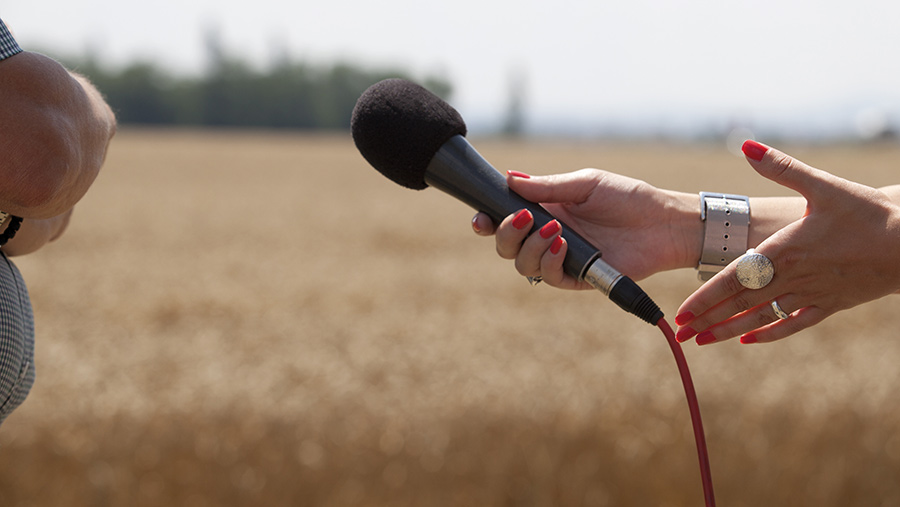Opinion: Seize the moment to tell the farming story
 © Wellphoto/Adobe Stock
© Wellphoto/Adobe Stock When Jeremy Clarkson announced he was to star in a television series about farming on his 400ha Cotswold estate for Amazon Prime, I was pretty sceptical.
Although I’ve always found Jeremy’s antics on the road entertaining, I was worried he would bring that same casual disregard for other people’s sensibilities to the industry that I love, and paint a less-than informative picture of the reality of British agriculture.
See also: What’s in Your Shed? visits Jeremy Clarkson’s 400ha farm
My fears proved unfounded. Clarkson’s Farm is a humble, empathetic and compassionate ode to the land and those who work it; I commend all involved.
With an A-list entertainer as frontman, the business of farming, food production and the environment has been opened to a new audience who have likely never pondered such things, let alone sat in rapt attention absorbing them for eight straight hours.
In a one-minute clip of Jeremy, which I tweeted, he masterfully condensed into sound-bite form the major challenges facing farmers today: it was subsequently viewed more than 250,000 times in 48 hours.
Given the seismic changes occurring since 2016, whether political, economic or environmental, farming has seldom been so often at the forefront of the news.
Brexit, the pandemic and shonky trade deals have made people think about the provenance and availability of their food.
Clarkson’s Farm is the biggest of many successful farming forays into popular culture in recent years, from James Rebanks’ English Pastoral to Hannah Jackson’s Call Me Red; from the continuing ratings buster that is Countryfile to the many smaller shows such as This Farming Life or Born Mucky.
Strange as it may seem to us, there’s a clamour from those with no connection to the land to see life through our eyes.
As an industry, we must do everything we can to capitalise on this demand; by dint of the inherent fascination the public has with farming, we have a golden opportunity to build on our existing reputation as the most trusted and popular part of the food supply chain.
As we witnessed last summer with the NFU’s campaign on food standards, the only thing that has a hope of diverting the super-tanker that is a government with a tin ear and an 80-seat majority is a genuine groundswell of public opinion.
Next month will see the release of my attempt to illuminate the public discourse – Farm to Fork: The Challenge of Sustainable Farming in 21st Century Britain.
In the book, I try to explain to the general reader the realities of modern agriculture; why we do what we do, and how.
After all, if people don’t know about something, how can they be expected to care about it? And if they don’t understand the reality, they’re more likely to be fooled by “fake news” designed to deceive.
For those who don’t feel they have 85,000 words in them, there are so many other ways for each of us to connect with our customers – Tom Martin’s FarmerTime initiative; Leaf Open Farm Sunday; social media; or volunteering your services on local TV or radio.
British farmers have a fantastic story to tell, and we have a magnificent canvas from which to tell it. If we don’t fill that space, somebody else will.

